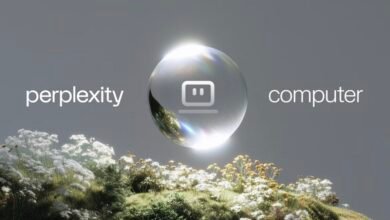Unlock SEO Power: How NLWeb Makes Schema Your Top Asset

▼ Summary
– The web is evolving from a navigable link graph to a queryable knowledge graph, shifting SEO focus from clicks to visibility and machine interaction.
– NLWeb is Microsoft’s open-source framework that enables websites to become conversational AI interfaces by converting structured data into semantic, actionable formats.
– NLWeb’s architecture relies on schema.org JSON-LD data, which it crawls, stores in vector databases for semantic understanding, and connects via the Model Context Protocol for interoperability.
– High-quality, entity-first structured data is essential for NLWeb’s success, as flawed data leads to inaccurate AI responses and limits entry into the agentic web.
– NLWeb enables dynamic, conversational AI interactions through structured outputs, contrasting with passive standards like llms.txt and future-proofing digital strategies.
The digital landscape is undergoing a fundamental transformation, moving beyond simple link networks toward a dynamic, queryable knowledge ecosystem. This shift elevates the importance of structured data from a mere SEO tactic to the very foundation of AI readiness and long-term digital visibility. Microsoft’s open-source NLWeb project stands at the forefront of this change, serving as a bridge that allows any website to become a conversational AI application.
NLWeb, which stands for Natural Language Web, provides a framework for developers to build natural language interfaces. It enables publishers to convert their existing sites into platforms where users and AI agents can interact with content through conversational queries, similar to chatting with an intelligent assistant. Its open-source, standards-based design ensures it remains compatible with various technology vendors and large language models, positioning it as a potential foundational element for the emerging agentic web.
At its core, NLWeb treats a website’s structured data as its knowledge API. The system’s architecture is built to transform existing schema.org markup into a semantic, actionable interface for AI systems. In this new paradigm, a website evolves from a passive destination into an active, queryable source of information.
The NLWeb data pipeline operates through a clear, three-stage process. It begins with data ingestion, where the toolkit crawls a site to extract schema markup. The JSON-LD format for schema.org is the preferred and most effective input, as the protocol utilizes every defined property and relationship. For data in other formats, like RSS feeds, NLWeb includes conversion capabilities to translate it into usable schema.org types.
Next, the collected structured data is stored in a vector database. This step is critical because it enables semantic search capabilities far beyond traditional keyword matching. By representing text as mathematical vectors, the AI can understand conceptual similarities. For instance, it recognizes that a query for “structured data” is conceptually identical to content marked up with “schema markup,” a capability essential for genuine conversational functionality.
The final layer involves connectivity through the Model Context Protocol (MCP). Each NLWeb instance functions as an MCP server, an emerging standard for packaging and exchanging data consistently between different AI systems and agents. MCP represents the most promising path for ensuring interoperability within today’s fragmented AI ecosystem.
This entire process places the ultimate test on schema quality. Since NLWeb depends entirely on crawling and extracting schema markup, the precision, completeness, and interconnectedness of a site’s content knowledge graph directly determine its success. The primary challenge for SEO teams involves tackling technical debt. Custom, in-house solutions for managing AI ingestion are often costly, slow to adopt, and difficult to scale, frequently creating incompatibility with future standards like MCP. While NLWeb manages the protocol’s complexity, it cannot compensate for faulty data. Inaccurate, poorly maintained, or incomplete structured data results in a flawed vector database, leading to suboptimal outputs and potentially inaccurate AI responses.
The contrast between NLWeb and other proposed standards, like the llms.txt file, highlights a divergence between dynamic interaction and passive guidance. The llms.txt file is a proposed static standard aimed at improving AI crawler efficiency by providing a prioritized list of a website’s most important content, typically in markdown format. It attempts to solve technical problems related to complex, JavaScript-heavy sites and LLM context window limitations.
In sharp contrast, NLWeb is a dynamic protocol that establishes a conversational API endpoint. Its purpose extends beyond pointing to content; it actively receives natural language queries, processes the site’s knowledge graph, and returns structured JSON responses using schema.org. This fundamentally changes the relationship from “AI reads the site” to “AI queries the site.”
A comparison of the two approaches reveals clear differences. NLWeb’s primary goal is enabling dynamic, conversational interaction and structured data output, operating as an active API/Protocol endpoint that uses Schema.org JSON-LD. It is an open project with connectors available for major LLMs. Its strategic advantage lies in unlocking existing schema investment for transactional AI uses, thereby future-proofing content.
Conversely, llms.txt aims to improve crawler efficiency and guide static content ingestion, operating as a passive static text file that uses Markdown. It remains a proposed standard not yet adopted by major LLM providers. Its strategic advantage is reducing computational costs for LLM training and crawling. The market’s clear preference for dynamic utility explains why llms.txt has failed to gain significant traction, while NLWeb’s functional superiority enables richer, transactional AI interactions.
The strategic imperative for website owners and digital marketers is undeniable: mandating a high-quality, entity-first schema audit is now essential. While NLWeb is still an emerging standard, its value is evident in maximizing the utility and discoverability of specialized, deep-archive content. The return on investment materializes through enhanced operational efficiency and stronger brand authority, rather than immediate traffic metrics. Organizations are already exploring how NLWeb can allow users to ask complex questions and receive intelligent answers that synthesize information from multiple sources, a task where traditional search often struggles.
Because NLWeb’s functionality is wholly dependent on schema markup, technical SEO teams must prioritize auditing existing JSON-LD for integrity, completeness, and interconnectedness. A minimalist approach to schema is no longer sufficient; optimization must be entity-first. Publishers need to ensure their schema accurately reflects the relationships among all entities, be they products, services, locations, or personnel, to provide the necessary context for precise semantic querying.
The transition to the agentic web is already in motion. NLWeb offers a viable, open-source pathway to achieving long-term visibility and utility. Ensuring your organization can communicate effectively as AI agents and LLMs begin integrating conversational protocols for third-party content interaction is no longer optional; it is a strategic necessity.
(Source: Search Engine Land)





